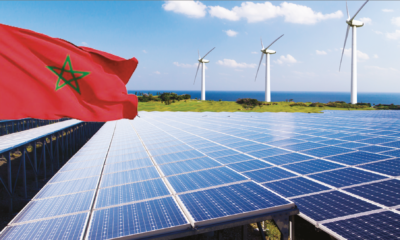Kingdom
Leila Benali: Towards a 20% Reduction in Energy Consumption by 2030
The new strategy is set to deliver a 20% energy savings by 2030, in line with the National Sustainable Development Strategy and the recommendations of the New Development Model. This approach aims to transform key sectors such as transportation, industry, agriculture, and many more.

Morocco has set an ambitious goal of achieving at least 20% energy savings by 2030 through a new energy efficiency approach, announced Minister of Energy Transition and Sustainable Development, Leila Benali, on Wednesday.
Speaking at a meeting of the Finance and Economic Development Committee at the Chambre of Representatives, focused on the financial governance of the Moroccan Agency for Energy Efficiency (AMEE), Minister Benali emphasized that the new approach aligns with the objectives of the National Sustainable Development Strategy (NSDS) and the recommendations of the New Development Model. The strategy will target key sectors including transportation, buildings, industry, agriculture, and public lighting.
This approach primarily relies on integrating energy efficiency principles into new investment projects, including energy efficiency measures in public expenditures and state-subsidized programs, and emphasizing the importance of making energy efficiency a central concern for professionals and citizens.
Ms. Benali noted that energy efficiency is the second pillar of the national energy strategy, driven by His Majesty King Mohammed VI, and it also presents promising opportunities for job creation in the energy sector, with 100,000 jobs expected by 2030.
“The ministry places particular importance on the development of energy efficiency as a key lever for energy transition, contributing to strengthening the competitiveness of Moroccan companies and reducing the energy bill for citizens and economic actors,” said the Minister.
According to AMEE data, Morocco achieved energy savings of 6.58% in 2020. The agency is currently working on updating this indicator.
Minister Benali also revealed that studies for developing regional energy efficiency and decarbonization plans have been completed for all regions of the Kingdom. These plans are expected to facilitate the energy rehabilitation of local authorities and achieve significant savings in their energy consumption.
Focusing on public lighting, the Minister indicated that implementing energy efficiency measures in this sector could reduce lighting consumption by 40%. She noted that public lighting expenses are the second largest expenditure for local authorities after staff costs and represent the largest energy expense for these entities.
Ms. Benali also recalled a 2022 pilot program rewarding individuals and stakeholders for electricity consumption reduction, leading to a 3% energy savings.
Regarding the regulatory framework for energy efficiency, the Minister announced ongoing efforts to finalize additional implementation texts, including revising energy consumption thresholds set by mandatory energy audit decrees and defining minimum energy performance requirements for lighting systems.
In terms of AMEE’s competencies, a bill is under review to expand the Agency’s missions for greater autonomy and performance, aiming to strengthen governance by adopting best practices in program management, monitoring, and evaluation of energy efficiency programs.
The Director-General of AMEE, Mohamed Benyahya, highlighted that the bill aims to assign new responsibilities to the Agency, particularly in decarbonizing various sectors of the national economy and promoting circular economy practices through industrial waste valorization.
Overall, the institutional reform seeks to enhance the synergy between energy efficiency, decarbonization, and resource utilization within the circular economy framework, addressing institutional gaps to bolster the Agency’s role through monitoring, measuring, and verification mechanisms.












